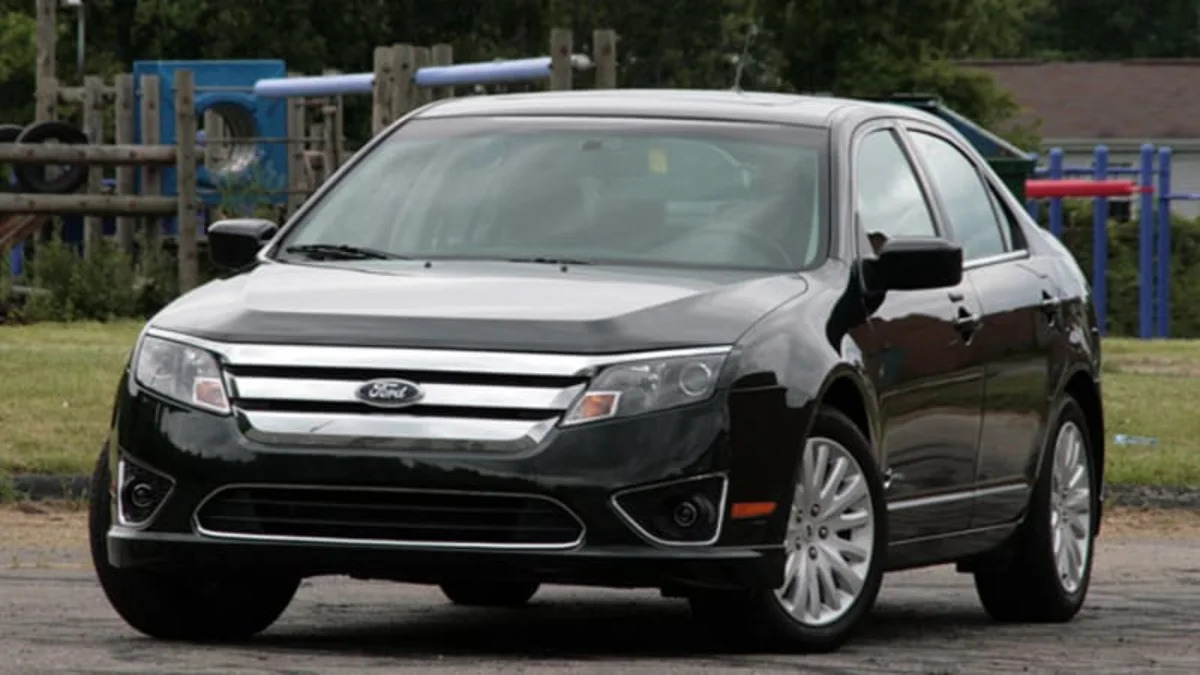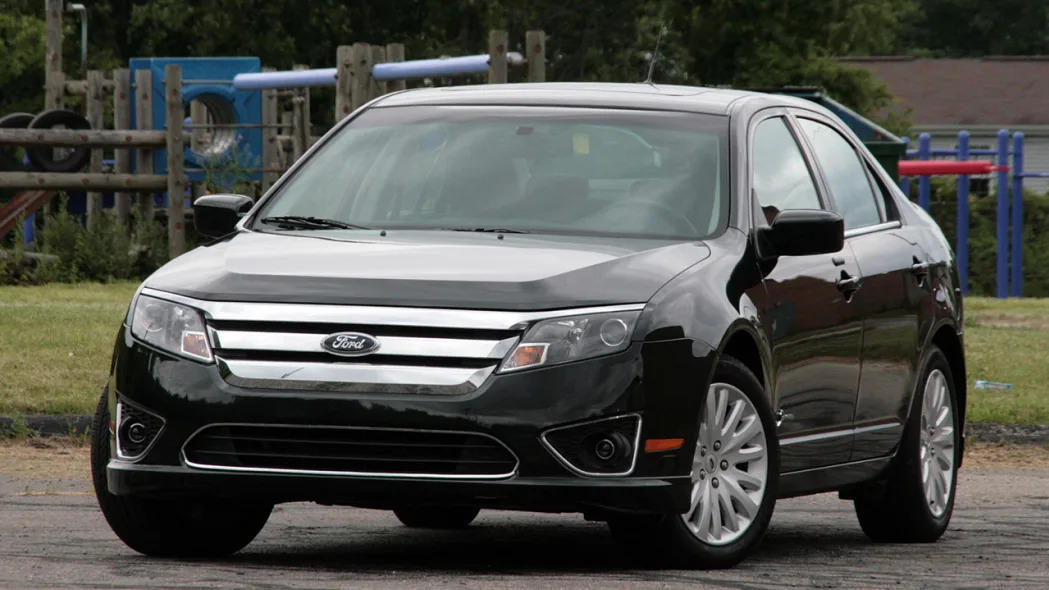2010 Ford Fusion Hybrid – Click above for high-res image gallery
If you've gone shopping for a hybrid vehicle in the last several years, you may have noticed that they often have substantially higher price tags than conventional counterparts. Of course, it's inevitable that a hybrid will cost several thousand dollars more than a comparably equipped conventional model. After all the hybrid has a lot of extra hardware installed and the powertrain requires more engineering development time than a standard engine.
The problem comes when you try to do that "comparably equipped" comparison. Options and equipment packages are where automakers make much of their profit margins, and entry level models have much smaller margins. Because of the initial investment required to develop hybrids in the first place, automakers tend to bundle more equipment with hybrids so that they can hide some of that cost. The fear is that an expensive hybrid with less equipment might not be salable. General Motors got a lot of criticism when it launched the two-mode hybrid SUVs because the near $50,000 price tag that was only available with features like leather seating and a navigation system.
The Union of Concerned Scientists has put together a table of hybrids and rated each based on "forced features," "hybrid value," and environmental score. The Toyota Prius got top marks for value and environmental benefit and a relatively good, although not great, score on forced features. The Honda Civic and Ford Fusion hybrids got dinged for bundling more features. The Lexus LS600h and GM SUVs got slammed for biasing the hybrid systems to performance and requiring a lot of content. Check out the full scorecard.



Sign in to post
Please sign in to leave a comment.
Continue